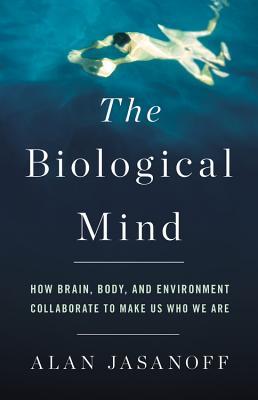
The Biological Mind
How Brain, Body, and Environment Collaborate to Make Us Who We Are
چگونه مغز، بدن و محیط برای ساختن ما که هستیم با یکدیگر همکاری میکنند
کتاب های مرتبط
- اطلاعات
- نقد و بررسی
- دیدگاه کاربران
نقد و بررسی

February 1, 2018
What is the brain? If you answered by describing what the brain does, then this well-crafted overview may not be your cup of gray matter.The devil may not make us do things, but peer pressure, illness, addiction, and the health of our wallets certainly do. Jasanoff, the director of the MIT Center for Neurobiological Engineering, begins his account by stating that his chief interest lies more in "what the brain is rather than what it does." Though he allows some operational description along the way, he arrives at a suitably open-ended definition: the brain is "a transit point for myriad influences that work jointly on us and through us." So, the brain is an organ that perceives and organizes perception, but there is a difference between brain and mind, a distinction between what is innate in the physical being and what comes in from the outside world. The definition is biologically grounded, and in that regard, one of the fascinating branches of the author's discussion concerns the evidence for the notion that an organ or tissue transplant might "change a person's mind or personality" beyond the obvious one of having a new lease on life. The text can get a touch dense, for matters such as "body-wide emotional responses" and "ventromedial prefrontal cortex damage" resist easy reduction to pop science. Still, Jasanoff writes with admirable clarity as he argues that the modern tendency of neuroscience to take a "brain-centered view" that overlooks external sources of behavior can lead to epistemological dead ends. For instance, if the mere fact of having a brain explains all the things we do, can we hold anyone accountable for crime--anyone, that is, other than the brain itself? The question opens onto a consideration of the brain of the mass shooter Charles Whitman, who suddenly seems a timely presence considering all the mischief brains get into these days.For serious students of neurobiology as well as readers interested in philosophical questions of mind and body.
COPYRIGHT(2018) Kirkus Reviews, ALL RIGHTS RESERVED.

March 1, 2018
Cerebral mystique, according to Jasanoff (director, MIT Ctr. for Neurobiological Engineering), results in elevating the importance of the brain to such an extent that it is viewed as containing the essence of who we are as individuals. In the past, the soul was thought to encompass our humanity (our personalities, intellect, etc.), but today the brain has replaced the soul as the repository of our unique beings. This phenomenon, argues Jasanoff, is problematic. The brain should be seen as biologically based; it works in conjunction with the rest of the body as well as the external environment in which it grows and develops. Jasanoff first explores how neuroscience has contributed to the cerebral mystique of the brain. He then examines how our world might be improved by a more biologically centered view of the organ. VERDICT Taking the brain off of its pedestal, Jasanoff offers an exhaustive, comprehensible, and at times playful (e.g., why do humans now study brains instead of eat them?) look at the brain. Appropriate for both neuroscientists as well as general readers interested in gaining a better understanding of this vital organ.--Ragan O'Malley, Saint Ann's Sch., Brooklyn
Copyright 2018 Library Journal, LLC Used with permission.

























دیدگاه کاربران